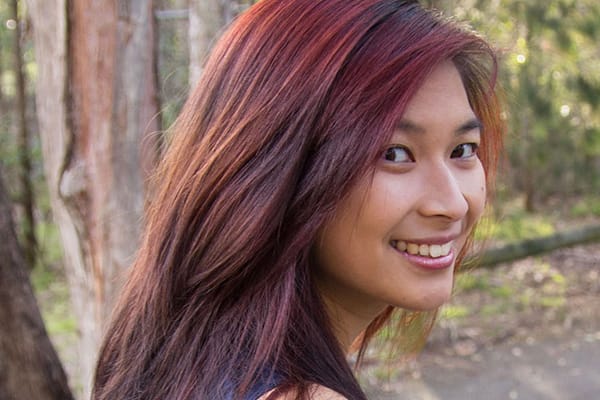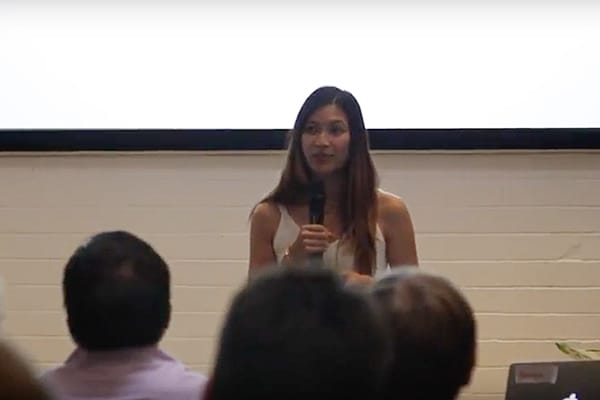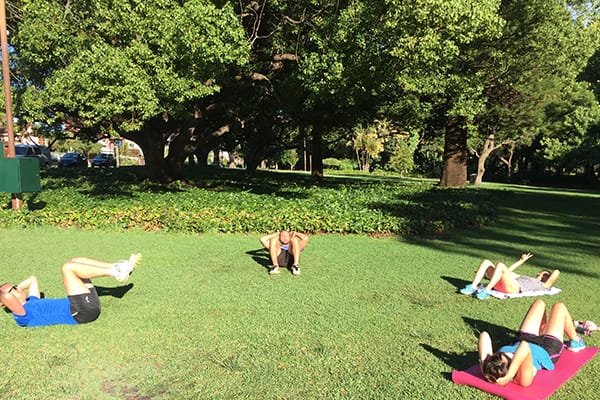1. Please tell us a little about your web story!
I’ve actually done a talk about my web development story! I’m self-taught and have no formal education in web development. I started out like most 90s kids did: I was playing Neopets (a virtual pet game) and other games on the internet and became curious as to how websites were built.
I didn’t think about making web development a career. I wanted to be a vet or a doctor when I was in primary school. I also wanted to be a teacher. During high school I explored all my career options based on my hobbies. I studied every possible science subject in school because I wanted to be a geologist. I was fascinated by rocks and volcanoes. I played piano and guitar, so I wanted to be in a band. But I couldn’t find people to work with. I really wanted to become an orthodontist because I was so fascinated by teeth. After doing work experience, I was put off by the fact that I would have to spend 12 years to become an orthodontist. I really wanted to become a ballerina, so I finished all my grade work and became a ballet teacher. After taking a break for a year, I even came back. But I realised that’s as far as I wanted to go.
Then I realised this whole time, on the side, the one thing I never stopped doing was writing and coding, learning using the internet as my main resource. I’ve been keeping a blog for fifteen years, writing about my life as well as other topics that interest me, in conjunction with designing and coding my blog as well as other little projects on the side. When looking for a job, the idea of coding really interested me, so I put together a portfolio and it wasn’t long before I got my first job in the field.
I have grown a lot and learned a lot since that time. I don’t see myself leaving the industry any time soon. Web development is so broad, the world of tech is so broad that I think if I wanted a bit of change, there would be a lot of flexibility.
2. What advice would you give to someone getting started as a front-end developer?
It’s OK to suck. Many people start learning how to code and then give up because they compare their work to others and think they will never get there. The people who eventually succeed in their careers will always look back at their old work, share it with other people and laugh at how bad or ugly it is. That’s because at the time, they thought it was the best thing ever. At the time, they were so engrossed with the cool new things they learned, trying to use the knowledge all the time, and just trying different things. I was exactly the same. I never stopped to look at the world around me or compare myself to anyone else. It’s not selfish – it’s important to focus on you and your learnings.
All learning takes time. You will never get from zero to one just like that. And what you learn now, as long as it might take, will always pay off in the future and you will realise it’s worth the time. Some of my recommendations would be to do a few online courses and experiment with coding things. They don’t have to be exceptional. It’s also a good idea to network and ask people in the industry about their experiences. I don’t always enjoy going to many meetups because it’s out of my comfort zone, but you can learn a lot from other people.
3. How do you describe what you do to people who aren’t in the industry?
I’m not a big fan of the term “front-end developer” as it is very hard to explain. Sometimes I just say that I code websites. If I’m not in the mood to explain, I’ll honestly just say I’m a software engineer…! I tell most people something like, “I bring a picture of a website to life on the page.”
There’s more to say because I sometimes design things, and I might also explain that I have little experience in back-end development, but that usually does it.
4. What’s something that you’d want to jump in to learn as a junior again?
I wish I could say everything, because the web world is so incredibly fascinating to a beginner – but CSS. It was like, the best thing ever to discover. It’s one thing to have content on a page with HTML, but to be able to make it pretty with CSS was a whole other dimension. I’ve watched back-end developers who have never touched front-end become amazed by what they can do with very little CSS to change what they see on the page. I mean, my Localhost talk was a little bit like that – showing people what you can do with just a little bit of CSS. And seeing people touch CSS for the first time, I see a bit of my young excitement, haha.
5. What’s the one thing you believe all websites should have? Or shouldn’t have?
All websites should be mobile-friendly or have a mobile-friendly version. It doesn’t have to be perfect, but being able to use a website on a mobile device (such as a phone) is a huge difference compared to trying to zoom in, zoom out, and scroll whilst trying to read something. We use the internet on our phones so much these days that I think it is important for websites to be accessible on them.
Websites should not have large third-party banner advertisements or links to clickbait articles. They are hands-down the most visually overwhelming, mentally distracting, user-confusing, data-sucking, page-occupying elements you can have on a website. They are associated with privacy concerns, ethical concerns, even more banner and pop-up advertisements, spam, lottery scams, malware, and general trickery. The amount of times I’ve seen people like my parents click on an advertisement with a clickbait headline makes me want to cry. While advertisements have a purpose, it’s all just getting too much and I miss the visual peace that comes with a clean and banner-free website.
6. What do you believe a national body like the Australian Web Industry Association (AWIA) could do to elevate our industry as a whole?
Supporting events, conducting workshops, supporting initiatives like women in tech or bringing more attention to the wonderful work being done in the industry, encouraging students to pursue careers in technology. I feel that the industry is just known for having “smart people” and not always linked to some of the innovative ideas and products out there. There is a also a bit of disconnect with learning programming and the fact that technology is very much embedded into the present and in the future. A national body could connect all these dots and fill in the missing gaps, giving people a better understanding of the tech industry.
7. What are the things you love about Localhost?
I love the name Localhost. It’s so fitting. The branding is super fun. From what I already know, everyone in the community is super friendly. And I love the team behind Localhost! They are such hard workers and I am so touched that they have put in so much time and effort for an initiative that has an amazing mission behind it.
8. What potential do you believe this concept, a supercharged and multi-city meetup, has?
I think it has the potential to bring the communities closer together. Perth’s web community is so close-knit and everyone knows each other. I absolutely love that communication goes beyond Perth’s meetups to have activities together like fitness and rock climbing and casual catchups, and even communicating through a Slack group. In comparison, there is not much of that in Sydney, and bringing people closer together to make friends amongst like-minded people is something I will probably crave every time I go home after visiting Perth.
There is also a lot of talent in Australia in the web community, and a heck of a lot of support. Localhost will help bring attention to up-and-coming, lesser-known, but extremely talented designers, developers or other web folk, and put them in the spotlight. It’s something I am also personally trying to do in a new interview series on my blog focussed around women in tech. In turn, giving these people the chance to shine can also inspire anyone thinking about starting in the field.
9. Who absolutely must speak at a future Localhost event?
Dominik Wilkowski and Chris Wright are two developers who I’ve had the pleasure of working with throughout my career – they have years of knowledge, think outside the box and I really respect them.
10. Would you recommend Localhost to your peers, either as speakers or attendees?
This is one hundred percent a yes! Definitely as attendees, but even if you are new to speaking, you will be backed by a great group of people. There’s no high expectations and no pressure that will make you feel uncomfortable. It would be a great first meetup to speak at.
Woo! Thanks for the chat, Georgie. It was great to hear your story, thoughts and feedback. Thanks for being part of Localhost, you're awesome!


